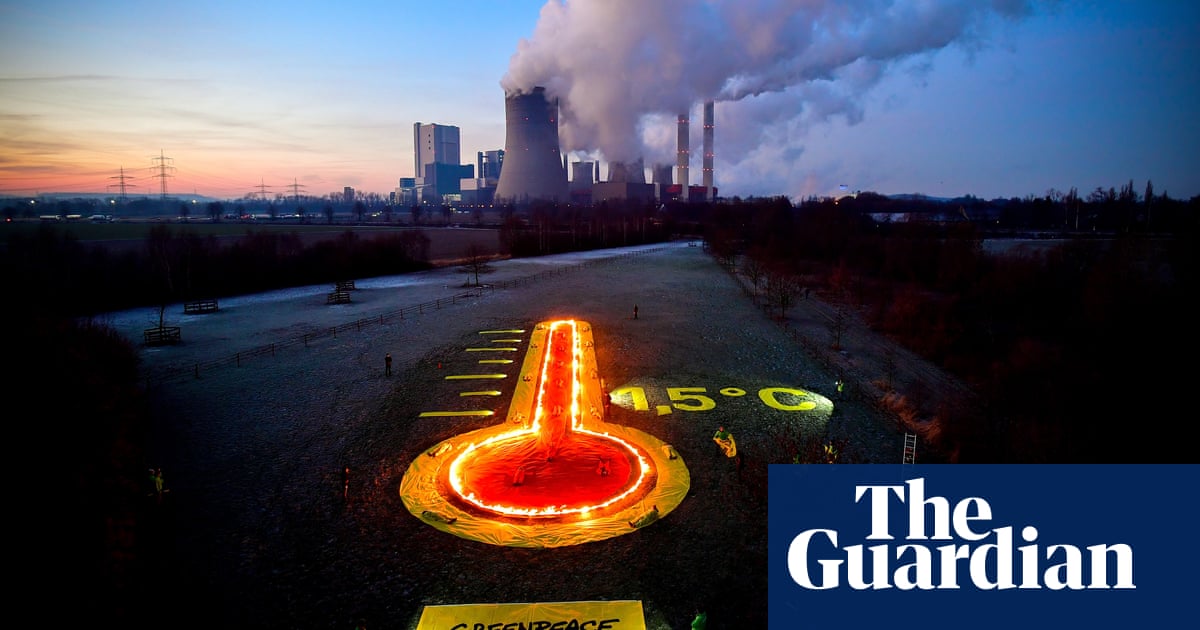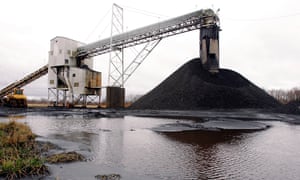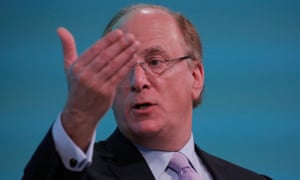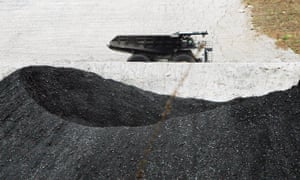BlackRock, which controls $6.5tn in assets, urged to use its influence on planets biggest polluters

When a letter from BlackRocks founder and chief executive, Larry Fink, landed in inboxes in January saying that the worlds biggest investor would no longer invest in companies that are not compliant with the Paris climate agreement, people took notice. The media jumped on the announcement, which appeared to herald a new era of finance facing up to the perils of the climate emergency.
The letter was a hoax, carried out by the Yes Men, a group of pranksters with a history of embarrassing big companies. But while the message was fake, the concern behind it was not: environmental campaigners see BlackRock as a key obstacle to progress on meeting climate crisis goals.
Now they are stepping up the pressure on the worlds biggest asset owner which faces its shareholders at its annual meeting on Thursday to use its influence on some of the worlds biggest polluters, as it has done previously on issues such as executive pay.
Fink, who was paid $24m (18.8m) in 2018, began BlackRock as part of Blackstone, the worlds largest private equity group, and spun it out in 1995. Since then, New York-based BlackRock has risen to become an investing behemoth, controlling $6.5tn in assets a value more than twice the annual output of the UK economy.
That staggering size has placed BlackRock at the heart of the global fossil fuel industry: it is the largest investor in coal worldwide, according to InfluenceMap, an environmental campaign group, and has by far the highest density of coal holdings of the worlds 10 largest investors. BlackRock effectively owns 2.1bn tons of thermal coal reserves, based on the size of its stakes in major miners.
BlackRock is counted among the top three shareholders in every oil supermajor bar Frances Total, and is among the top 10 shareholders in seven of the 10 biggest coal producers, according to Guardian analysis of data from financial information firm S&P.
Yet Fink, 66, who moves in US Democrat political circles, argues that it is not his companys duty to fight the climate emergency. In the real version of his annual letter to shareholders, published in January, Fink said that his overriding duty is to make customers money, whatever the environmental consequences.
Our firm is built to protect and grow the value of our clients assets, Fink wrote. We often get approached by special interest groups who advocate for BlackRock to vote with them on a cause. In many cases, I or other senior managers might agree with that same cause or we might strongly disagree but our personal views on environmental or social issues dont matter here. Our decisions are driven solely by our fiduciary duty to our clients.

Critics argue that this approach is not financially sustainable in the long term, given the likelihood that the climate crisis is expected to make some business models redundant or even illegal through measures such as bans on petrol- and diesel-powered cars or fossil fuel companies being forced to leave oil in the ground.
Lauren Compere, a managing director at Boston Common Asset Management, a US investor, said investor action on the climate emergency was not about being political, but was rather a case of looking at the risks presented by the crisis to savers assets. Compere, whose job involves engaging with companies over issues such as the climate crisis, said other investment funds could put greater pressure on businesses.
There are big players that could be more proactive, more consistent, and frankly should probably be leveraging their assets more, she said. Across the globe it is not acceptable to sit on the fence not leveraging your assets.

Casey Harrell, a senior campaigner at the Sunrise Project, part of a broad coalition of groups putting pressure on BlackRocks environmental record, said: There is a real big disconnect between words and deeds that needs to be highlighted.
Investment strategies that follow environmentally friendly companies should be part of BlackRocks core offer to clients, rather than an option they must actively choose, he added.
BlackRock has acknowledged the growing demand for greener investment products as it tries to gain millennials as customers and employees. In October 2017 it hired Barack Obamas former climate change adviser, Brian Deese, to be managing director of its sustainable investing business, which now has $32bn in assets under management. Former UK chancellor George Osborne is another part-time employee, earning 650,000 a year, although climate crisis was not included on the list of topics such as China and European politics that he is advising on.

Regarding investment attitudes towards companies that are undeniably contributing to the climate emergency, BlackRock and other major investors argue that it is better to stay invested and push for change from within. Yet with BlackRocks scale, meaningful engagement would be a gargantuan task. BlackRocks stewardship team of 43 people which decides how BlackRock votes at shareholder meetings must cover every major listed company in the world across 90 markets.
When it does engage, evidence of progress is limited. BlackRock said it had 232 engagements with companies on climate-related matters during the year to June 2018. Only a fifth of the companies bothered to respond in substantive fashion to requests to disclose climate risks to their businesses or to say why they did not plan to do so. BlackRock could not provide any quantitative evidence that its engagement approach was working.
Research by Majority Action, a pressure group, found that BlackRock lags many of its rivals in supporting climate-related resolutions.In the year ending 31 August 2018, BlackRock supported only 23% of climate crisis reporting proposals to make companies report their carbon dioxide emissions or their exposure to climate emergency-related risks compared with 33% at US-based Vanguard and 85% at the UKs largest asset manager, Legal & General.
In some cases BlackRock has stood in the way of environmental action. The company voted against a 2018 proposal for Royal Dutch Shell to carry out detailed scenario planning for a world affected by temperature rises of 2C, because we found the proposal overly prescriptive.
In the case of US oil company Chevron, BlackRock was among the investors that could have tipped the balance in favour of imposing targets for reducing emissions of methane, a greenhouse gas. Some 45% of shareholders voted in favour, but BlackRock and Vanguard, both of which held more than 6% of the votes, opposed the motion.
In a statement to the Guardian, BlackRock said it was better, given the firms commitment to long-term investment in businesses, to discuss climate policy with companies than to challenge them through shareholder resolutions. Given the multi-year nature of the energy transition and the challenge of addressing climate change, our process emphasises engagement before voting because we find that is the most effective way to achieve productive outcomes in our clients long-term interests.
While BlackRock is by no means the only investor dragging its feet on climate issues, its power and totemic place at the top of the investment world mean it could have an outsized impact, according to activists.
Theres a bit of a herding mentality in the institutional investors, said Jeanne Martin, a senior campaigner on fossil fuels at ShareAction, a responsible investment charity. If they start using their shareholder rights at these companies that would really shift the dial.
Read more: https://www.theguardian.com/business/2019/may/21/blackrock-investor-climate-crisis-blackrock-assets


Recent Comments